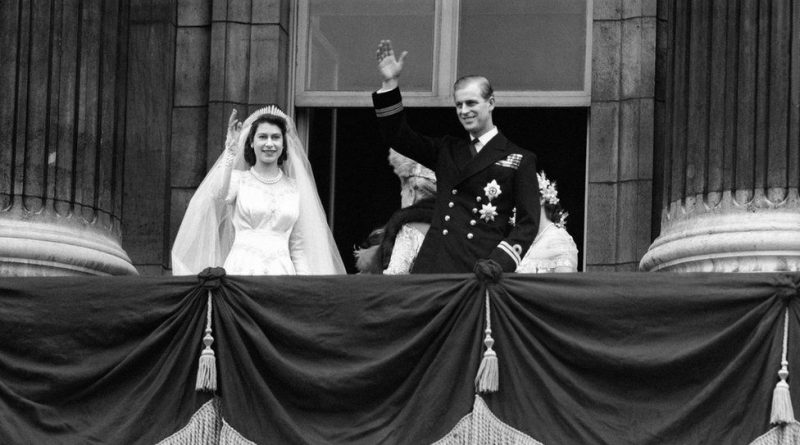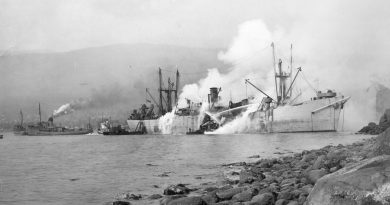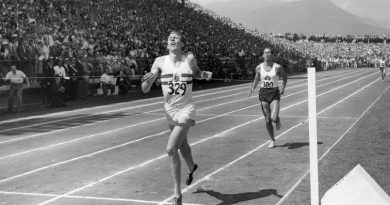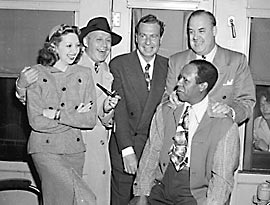1947
Above: Princess Elizabeth and The Duke of Edinburgh were married at Westminster Abbey.
[Image: www.bbc.com/news/in-pictures-42002426]
*****************************************
You’ll note that these years include events listed under “Also in . . .” These are events for which we don’t have a specific date. If YOU know the specific date of an event shown there, please notify us . . . and cite the source! Many thanks!
*****************************************
January 27 Liverpool-born Walter Mulligan, 42, a Vancouver police officer for 20 years, became chief of the department.
January 31 The centennial of Congregation Schara Tzedeck will happen in 2007, but the building associated with it—the synagogue at Oak and West 19th—got its start January 31, 1947, when Vancouver mayor Gerry McGeer officiated at the sod-turning ceremonies. The synagogue was dedicated as a memorial to Jewish war veterans.
Schara Tzedeck (SHAW-ra TZED-ek) was known in 1907 as B’Nai Yehuda (Sons of Israel), and worshippers—there weren’t many—had to meet in rented halls or private homes. By 1911 the Jewish community here had grown large enough to warrant building a 600-seat synagogue at the corner of Heatley and Pender. In 1917 they changed their name to Schara Tzedeck (“Gates of Righteousness”).
They would be in that building for more than 30 years. By then many of the city’s Jews were living near and around Cambie and Oak Streets, so this new synagogue was built to be closer. “By the end of World War II,” historian Cyril Leonoff writes, “the Jewish community had completely deserted Strathcona.”
Vancouver lawyer Jack Kowarsky wrote a history of the congregation in 1984, its 77th anniversary (the number 7 is considered especially lucky), and says Schara Tzedeck was the largest synagogue west of Montreal. It’s still the largest Orthodox synagogue in Vancouver.
February 1 Winnipeg-born Bob Smith made his debut as host of the CBC radio show Hot Air. Virtually all the jazz recordings Bob played were from his own collection. He would host Hot Air out of the CBC’s Vancouver studios for 35 years. Hot Air—the host today is Paul Grant—is Canada’s longest-running radio program. Neil Ritchie has been producing the show since 1980.
Bob Smith would host the show until 1982, when he left because of the onset of Parkinson’s Disease. Paul tells us a series of staff announcers then hosted the show, including Harvey Dawes, Bruno Cimolai and Gordon Hunt, until he took over April 8, 1995. (Bob died in 1989.) “Hot Air has always showcased BC jazz musicians,” says Paul, “and has (so far) released three compilation CDs from material taken from our studio sessions.”
February 10 An era ended as the last ferry across Burrard Inlet to West Vancouver ran, then returned to the downtown terminal. The last ferry to North Vancouver would be in 1958.
March 31 The Eburne Post Office closed. It had been active since 1892.
April 19 Writer Daniel Francis was born in Vancouver. He wrote about 80 per cent of the entries in the splendid Encyclopedia of British Columbia—ten years of research and writing—so for many thousands of us in years to come his take on the province’s people, places and events will be a major source of information. In the 1980s Francis was a contributor to The Canadian Encyclopedia, and editorial director of the Horizon Canada (illustrated history) project. Said Terry Glavin in the Georgia Straight: “The EBC is lively, serious, profusely illustrated, authoritative, funny, and a thing we should all be proud of . . . No household in British Columbia should be without one.” Francis is also the author of the 2004 biography Mayor Louis Taylor and the Rise of Vancouver.
April 28 A Trans Canada Airlines Lockheed Lodestar disappeared in southwestern B.C. with 15 people on board. None survived. Not until September, 1994, more than 47 years later, was the crash site discovered on Mt. Cheam near Chilliwack.
May 10 Vancouver school children circulated a petition calling for an end to wartime taxes on candy. In response, the price of chocolate bars was lowered from eight cents to seven cents.
May 13 Broadcaster Rick Honey was born.
May 23 Writer and broadcaster Gary Bannerman born in Nova Scotia.
June 15 Environmental commentator Patrick Moore was born in Port Alice. The fact that Moore was one of the founders of Greenpeace, and served as its president for many years, but now as a director for the Forest Alliance is a spokesman for the industry enrages the more fiery of the anti-logging groups. One group created a web site titled Patrick Moore is a Big Fat Liar, listing ten “lies.” It wasn’t up long before Moore created a responding site titled, of course, Patrick Moore is NOT a Big Fat Liar and rebutting their charges one by one. “The tide is turning,” he wrote, “against the anti-science extremist element in the environmental movement. It’s time for people in the political center who base their opinions on science and reason to take the movement back.”
June 24 US pilot Kenneth Arnold was flying above Cascade Range in Washington State when he spotted nine silver disc-shaped objects in the sky ahead. These objects performed incredible aerial manoeuvres unlike anything Arnold had ever seen. He reported his sighting to the media, likening the discs to saucers, and the “Flying saucer” era began.
July 31 The BC Bus Terminal opened.
August 6 Saskatchewan-born Art Seller moved his little airplane company from Vancouver to Langley. There’s a terrific web site about Art at this site. It reads, in part: “To take advantage of the postwar flying boom, almost as soon as he got home in 1945, in partnership with Harold Foster, whom he later bought out, he formed Royal City Flying Club at Vancouver Airport. It had one war surplus Tiger Moth. Later, a second Moth was added. Vancouver airport was becoming crowded so, in 1947, he decided to move to Langley. He might almost be considered the father of the present day bustling Langley Airport for in 1947 it was only a grass field—an emergency landing strip for Trans Canada Airlines, with no buildings other than a couple of old farm privies Art used as offices. Business was good. The company grew. On August 6 1947 it changed its name to Skyway Air Services . . .” There’s lots more, and it’s good stuff.
August 11 Vancouver mayor Gerry McGeer died, aged 59. His death came as a shock: he’d been in office just a little over seven months. The vigorous and ebullient McGeer passed quietly, lying on a sofa in the den of his home at 4812 Belmont. “Clad in pyjamas, covered by two blankets, he was found by his driver, Police Constable Andy Sculley, (who) had gone to pick up the mayor and take him to his office at City Hall.”
August 26 “After the Canadian army had vacated most of Ferguson Point, where a gun battery and camp had been located in 1938-45,” military historian Peter Moogk writes, “someone thought that the former officers’ mess there would make a splendid home for the commander of the military district. So it was converted to serve this purpose.”
But now that the war was over, the public attitude was that they wanted all of Stanley Park back, including unrestricted access to Ferguson Point. The park is federal government property leased to the city, but in the interests of good public relations, the commander, Brigadier E.C. Plow, left. Newspapers of the time said he had been “evicted.” Not so, says Professor Moogk, “just reporters putting a dramatic spin on events.”
The house has now been incorporated into the restaurant on the site.
Brigadier Edward Chester Plow had an interesting career. He was born September 28, 1904 in St. Alban’s, Vermont, and in 1925 joined the RCHA (Royal Canadian Horse Artillery, the senior unit in the Canadian Army). During the latter part of the Second World War, he was the army’s Senior Artillery Officer. A military web site has this: “During this period the role of the artillery was one of great importance and this arm of the service aided materially in the success of the battles in the victory in Europe. The successful and telling employment of artillery was in no small measure attributable to the technical knowledge and sound counsel of Brigadier Plow who demonstrated himself to be an unusually able and efficient officer.” Following the war Plow served in various capacities in Germany, Canada [cited above] and the UK, and was General Officer in Charge, Eastern Command, Canada, from 1950 to 1958. He was Lt.-Governor of Nova Scotia from 1958 to 1963., and a director of the Canadian Imperial Bank of Commerce from 1963 to 1974. He died April 25, 1988, aged 83.
August Not really local, but irresistible: A Mayne Island woman cut open a fish today and found a photograph of “a beautiful woman” in the fish’s belly.
September 13 The Sun reported today that the City of Vancouver had conducted a survey and discovered that more than 18,500 automobiles were driven in downtown Vancouver every day, “and there would be more than that if there was sufficient parking space.“ The survey determined that 6,000 of those drivers used their cars for transportation to work in the downtown. “Another 12,500 persons drive down for shopping, business calls and sales calls.”
Today? Jason Lam of the City’s Traffic Engineering Department gave us figures for 2003 showing that an average of 273,410 vehicles entered downtown every day, nearly 15 times the 1947 total.
But that 1947 survey covered more than traffic. It also revealed that the average shopper would be willing to pay 10 cents an hour for parking, 15 cents for two hours “and 35 cents for all-day accommodation.” We had parking meters back then, and the rate was five cents for an hour. (And the average wage was about $175 a month.)
October 6 Michael Geller, president and CEO of Burnaby Mountain Community Corporation, was born in Blackpool, England. He came to Canada at age 4. Geller is overseeing the development of a residential community to be integrated with the SFU campus, with housing, shops and services for up to 10,000 people. “This will create,” Geller says, “an environmentally responsible, technologically advanced community, and an everlasting endowment to the university. I’m confident that in years to come Burnaby Mountain will be recognized as one of the most extraordinary places to live and work, given its magnificent setting and access to SFU’s facilities and services.”
October 10 Province headline: BIGGER HASTINGS TRACK – GIANT DIPPER DOOMED
“The Happyland Giant Dipper will be torn down to make way for a new 5 1/2 furlong racetrack costing $200,000, to be built at Hastings Park in time for the races next summer. The announcement was made today by Mackenzie Bowell, president of the Pacific National Exhibition. The present track is a half-mile affair (four furlongs). The new track will be pear-shaped.. Estimated at $200,000 at present costs, the price of the new track may rise before it is completed . . . McGill street will be re-routed immediately north of the present race track and a cement retaining wall, 23 feet at the highest point, will be built. Head of the stretch of the new track will be approximately where the popular Giant Dipper is now. The present concrete and steel grandstand will remain, but a new roof will be built. There will be more room in front of the stands. The track, cutting down from the dipper site and providing for a longer stretch run, will angle to cut through the centre of the present jockey’s house. Then making a sweeping turn, it will go through the ‘L’ barn site and through two other old barns now where the back stretch will be. Frank Peterson, track expert for Bay Meadows and Portland Meadows, who examined dirt samples at Hastings track a week ago, believes that if the new track is dug down two feet, packed with Lulu Island peat then top-dressed with dirt and silt from the Fraser River bed, it will be among the finest and safest in North America. Mr. Bowell is doubtful if a new Giant Dipper will be built.”
October 15 A late-night radio show called Owl Prowl began on CKMO, with a brash young deejay named Jack Cullen. The show had been called DX Prowl (DX in radio parlance means “distance”), but Jack and a cohort, Frank Iaci, renamed it. “The show started October 15, 1947,” Jack recalled in 1994. “It ran from 10 p.m to 1 a.m. It was much more hit-parade oriented than today . . . I was a movie buff, and I subscribed to all the music and entertainment papers: Billboard, Variety, Metronome, Downbeat . . . and I used all this stuff. I sold my own spots ($1.50 or $2): I’d hustle by day, broadcast by night. The show clicked so quick. In six months I was laughing . . . I was making about $1,000 a month. In 1948 that was good.” In 1949, lured away by Bill Rea, Cullen would take Owl Prowl to CKNW.
October 20 The Vancouver Council of Churches was formed.
October 29 Gordon Houston, president and CEO of the Vancouver Port Authority, was born in Rothesay, Scotland. Capt. Houston (he pronounces it hoost’n), who had been harbour master in Prince Rupert, was the unanimous choice of both the selection committee and the port’s board for the post. Vancouver is Canada’s largest port, trading more than $30 billion in goods with more than 90 nations. It generates more than 10,700 jobs and $540 million in taxes. Click herefor more.
November 6 Woodward’s Department Store expanded, opened an extension.
November 14 Vancouver’s William Munavish, safecracker, became the first Canadian to be declared an habitual criminal.
November 18 Interviewer and writer Eleanor Wachtel was born. Her CBC Radio interviews with writers are justly celebrated.
November 20 Princess Elizabeth and Prince Philip were married.
November 21 After a test period, Vancouver’s first FM station CBU-FM 105.7, officially went on the air. At the beginning, programming was a simulcast of CBR AM 1130. See this site.
December 3 The old Lumberman’s Arch was demolished. Originally erected at Pender and Hamilton for the 1912 visit of the Duke of Connaught, it was moved to Stanley Park and dedicated on Aug 29, 1919, to its designer, Captain G.P. Bowie, who was killed during World War I. There were fears it might collapse and injure park visitors.
December 29 Liberal Byron ‘Boss’ Johnson became premier of B.C. ‘Boss’ was a nickname reflecting Johnson’s Danish heritage, not related to political domination. He headed a coalition government that had high hopes. “Great things are in store for the people of British Columbia,” he said. There isn’t room here to explain how those great things didn’t happen, but the coalition’s problems led directly to the rise of the Social Credit party and a fellow named William Andrew Cecil Bennett. Johnson would serve to August 1, 1952 and his defeat by Bennett.
Also in 1947
Vancouver-born composer Jean Coulthard was invited to teach music at the University of British Columbia, a position she maintained until her retirement in 1973. Her citation, upon receiving a 1994 Order of British Columbia, reads in part: “Jean Coulthard’s belief that a composer has a special responsibility to the community resulted in works designed to be accessible to the wider public, including works for students. She has brought British Columbia recognition in the musical field that has made possible the achievements of younger composers whom she taught and assisted.”
Chinese citizens got the vote back. They had lost it c.1875.
The new BC Tel building at Seymour and Robson was named for the late William Farrell, first president of the company.
Elizabeth Clarke was a nurse at the Vancouver Hospital for Crippled Children in 1947, who loved to read stories and poems to her little charges. One young boy was excited at seeing a sparrow on the windowsill by his bed, and that inspired Ms. Clarke to write the poem Bluebird on Your Windowsill. She later set it to music. People loved it, and Vancouver recording pioneer Al Reusch cut a version with Don Murphy. Then the Rhythm Pals performed it, and eventually the song was recorded by Doris Day, then by Bing Crosby and others. It became the first Canadian song to sell a million copies. Ms. Clarke gave every dime of her royalties to children’s hospitals across Canada.
The junior football Vancouver Blue Bombers became Dominion champions, a first for the city. Coach was Punjab-born Ranjit Mattu, a star athlete here in the 1930s and later.
A pugnacious reporter from Glasgow named Jack Webster, 29, left the newspaper world of Scotland (where he’d started at age 14) and England and came to Vancouver to work at the Sun.
Calgary-born Clyde Gilmour, 35, began contributing film reviews to CBC Radio in Vancouver. He had worked on various newspapers in western Canada and during the war served in the navy as news correspondent. Gilmour married Barbara Donald this year.
The George Derby Veteran’s Rehabilitation Centre opened in Burnaby. It began as part of the Shaughnessy Hospital complex to “assist veterans reintegrate following the acute care phase of their recovery by offering physical and occupational therapy programs as well as job retraining and rehabilitation.” The complex was transferred to the province in 1974 and in 1988 a new George Derby Centre would be opened as an intermediate care facility with 300 priority access beds for veterans.




